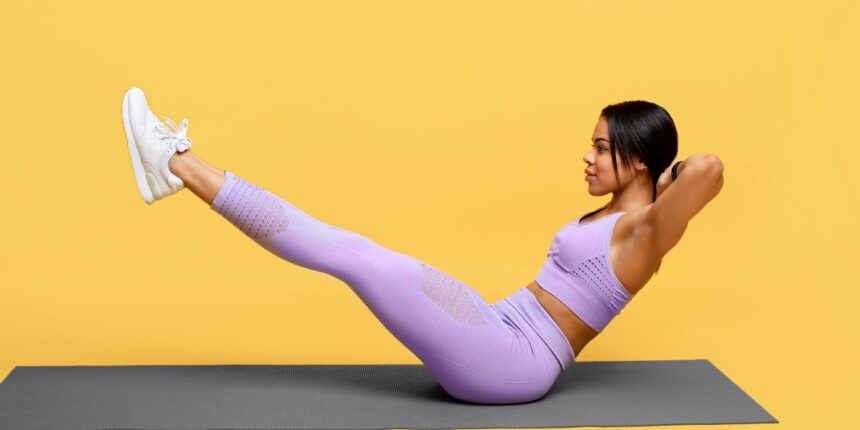For instance, a small 2015 study in Journal of Back and Musculoskeletal Rehabilitation found that doing exercises that strengthen the core is an “effective rehabilitation technique” for people who experience chronic low back pain. And a 2015 review of 135 research articles in the Journal of Physical Therapy Science confirms core strength training is a legit way to ease those aches.
Basically, a strong core “stabilizes the lower back and takes pressure off the back,” Dr. Melvan says. Think about it this way: Your spine is like a stack of children’s building blocks; muscles connect one block to the next—or span multiple segments of the spine—to keep it from tipping, Hamilton explains.
Your abdominal muscles stabilize your spine, per Hamilton; if they’re weak, then your stack of blocks—a.k.a. your spine—potentially won’t be as well supported. The result? Possible muscle injury in one or more segments, leading to back pain and dysfunction when doing activities like lifting your child off the floor or doing a deadlift in the gym, according to Hamilton.
3. …And lead to fewer injuries lower down the chain to boot.
A strong core may also reduce your risk for injuries in your knees and hips, according to Hamilton.
In fact, a small 2023 study in Scientific Reports found that core stability training can reduce the risk of ACL injuries caused by improperly landing from a jump. That’s because a weak core can interrupt your muscles’ energy transfer and create “abnormal” movement patterns that can increase your risk of injury.
“When you run, jump, lift, or otherwise generate force in your lower body to accomplish a task, if your core isn’t strong, then those forces will potentially result in unintended motion in the joints of the lower body, hips, or core,” Hamilton says.
If your core isn’t doing its job, other muscles have to try and compensate. That can contribute to overuse injuries in muscles that are “very distant anatomically but highly linked biomechanically,” Hamilton says, like in your knees, ankles, or feet.
4. Core strength can help you balance better.
A strong core can be a trifecta to ward off falls, particularly as you age: It can boost balance, coordination, and proprioception—your awareness of your body in the space around you, Dr. Melvan says.
Research backs this up: A small 2020 study in the Journal of Research in Rehabilitation Sciences found that eight weeks of core stability training improved balance in older adults with a history of falls. Another small 2018 study in Acta of Bioengineering and Biomechanics suggests that a single session of core training is enough to see a temporary boost in balance for 24 hours after.
And it’s not just about falls, either: Having good balance is important for younger folks who do activities like running or lifting in the gym. If you take a wobbly step on a rock outside or standing up from a lunge, “Your foot position is instantly thrown off and your ability to survive that disruption without a fall may come down to how strong your core is,” Hamilton says. “Can you react quickly enough and do you have enough power to right yourself and bring your center of gravity back to where it needs to be?”
5. It can make your workouts more efficient.
If you want to boost your athletic performance, power, and running efficiency, and be able to recover quicker, a strong, stable core is a necessity, according to Dr. Melvan. And Hamilton agrees.
Read the full article here



